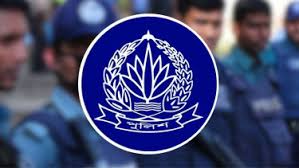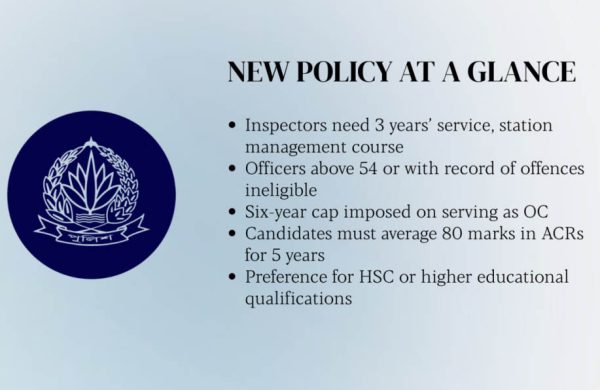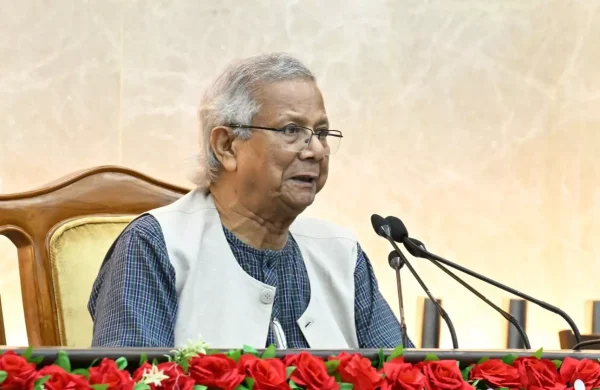Emails from ‘fake journo’: British MPs suspect smear campaign against BB governor
- Update Time : Monday, March 24, 2025

Staff Correspondent:
British MPs suspect they may have been targeted by a “disinformation” campaign against the Bangladesh Bank Governor Ahsan H Mansur as they receive emails from a “fake” journalist regarding his daughter’s wealth, reports The Guardian.
Ahsan H Mansur was made the governor of the central bank following the fall of the Awami League government and he is now in UK seeking help from the government and private companies to track down billions of dollars in assets allegedly stolen by allies of the Hasina regime, some of which he believes may have been used to buy UK property.
His visit has already been overshadowed by an escalating row involving Hasina’s niece, the former City minister Tulip Siddiq, who resigned from the role this year after Dhaka’s anti-corruption commission (ACC) filed a criminal case against her. She has denied all wrongdoing.
Now MPs fear that Britain’s efforts to assist Bangladesh could be further clouded by an apparent smear campaign against Mansur involving news articles by fake journalists.
MPs in the 47-member all-party parliamentary group (APPG) on responsible tax and corruption received emails ahead of a session on Monday with Mansur. The sender, who claimed to be a journalist, included links to a website called International Policy Digest, featuring articles about alleged displays of wealth by Mansur’s daughter and questioning why she was not under investigation.
However, neither of the supposed authors of these articles appears to have any other presence as journalists. The Guardian discovered that their profile pictures were actually stock images.
Mansur, along with MPs on the committee, expressed concerns that the emails were part of a deliberate disinformation campaign.
A former IMF official who previously lived and worked in Washington, Mansur stated that he believed individuals under investigation for money laundering were attempting to “tarnish my reputation and target me in various ways.” He also emphasised that his daughter, a US citizen, had little connection to Bangladesh.
APPG member Rupa Huq received a separate email from a UK public relations firm, Palatine Communications, which also linked to International Policy Digest. The email suggested that if Mansur was willing to “impugn the integrity of Tulip Siddiq,” then he and his family should also be subject to scrutiny.
Mansur denied ever making any comments about Siddiq. However, he holds a key role in the transitional government led by Mohammad Yunus, whose ACC has accused Siddiq and her family members as part of an investigation into a 2013 deal with Russia that allegedly inflated the cost of a nuclear power plant.
Huq described receiving such an email as “highly unusual” and compared it to protests that have taken place when she has spoken about Bangladesh in parliament. She said both incidents appeared to be efforts to “intimidate and interfere with parliament and MPs’ normal work.”
Members of the APPG have reportedly referred the emails to parliamentary cybersecurity advisers and the parliamentary foreign affairs committee, which is examining disinformation.
“If this communication is an attempt to mislead UK politicians regarding a serious corruption scandal, then I believe we should be deeply concerned,” said APPG member Phil Brickell. “I urge the relevant parliamentary authorities to conduct a thorough investigation—we need to uncover who funded this and why, so we can better protect ourselves.”
A spokesperson for Palatine Communications stated: “Our client instructions are confidential. We sent the email in question on our own initiative.
“We have no connection to, and no knowledge of, the authorship of this article, nor did we ever claim it was absolute truth. Like many articles from various media sources, it raises valid concerns about the current situation in Bangladesh, which we believe MPs should consider.”
Meanwhile, a spokesperson for International Policy Digest said the actual author of the articles “wished to remain anonymous” but insisted they were confident the content was “fairly accurate.”


















